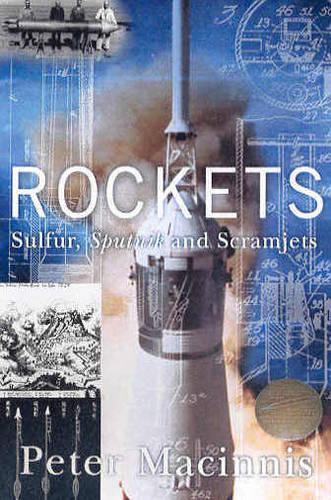
Rockets: Sulfur, Sputnik and scramjets
(Paperback)
Publishing Details
Rockets: Sulfur, Sputnik and scramjets
By (Author) Peter Macinnis
Allen & Unwin
Allen & Unwin
1st July 2003
Australia
Classifications
General
Non Fiction
Popular science
621.43
Physical Properties
Paperback
288
Width 130mm, Height 195mm
364g
Description
A history of rockets from their early Chinese origins to their modern use in the military, space exploration and commerce. The story starts around 700 BC, when the Chinese used a form of gunpowder to fumigate their houses. The first real rockets were gunpowder-filled sections of bamboo thrown under horses to scare them; the next development was to tie these to arrows. The Mongols took rockets from China to Europe where only some, including Admiral Nelson and the Crown Prince of Sweden, were impressed. The Royal Navy used them in all sorts of odd actions against "restless natives" in Tierra Del Fuego, Australia and New Zealand, and the Russian and Austrian empires adopted rockets as alternatives to artillery in boggy and mountainous territory. By 1870 their heyday appeared over, but since the Roman Empire people had dreamed of travelling to the moon and by 1900 some were starting to realize that rockets were the only way to get there. Robert Goddard in the USA and other space enthusiasts all across Europe in the first half of the 20th century started developing the rockets that are now used for space exploration, by the military, and for commercial purposes such as setting up satellite communications that have revolutionized our modern world. The story ends with a look at the future of rockets and the third generation spacecraft, the scramjet. The author fills this book with a cast of unusual people and events to tell the story of the history of rocketry including pissoirs in Paris, stuntmen in New York, kangaroos in outback Australia and a socialist nudist New Zealand physicist.
Author Bio
Peter Macinnis has been involved in bringing science to the general public for many years, in print, on line and on air on the ABC. Formerly a science teacher, he has written a number of school textbooks and science readers. After leaving teaching he worked at the Powerhouse Museum and the Australian Museum. He is now a full-time writer for adults and children.
